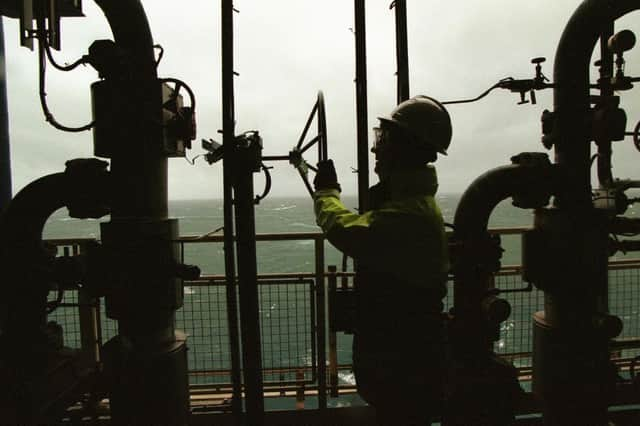Marginal oil fields ‘worth £40bn to UK’


The fields in the UK continental shelf could create 2,500 jobs and £26bn of investment, as well as giving the “national economy a much needed boost”, a report by analysts at RMRI Consulting has found.
There has not been a significant oil field discovered, holding hundreds of millions of barrels, for five years in the region.
Advertisement
Hide AdAdvertisement
Hide AdMarginal fields in the UK waters in the North Sea are estimated to hold about 1.2 billion barrels of oil.
“If we assume that all the marginal fields are developed and the total reserves produced, then the potential post-tax profit based on a $90 per barrel oil price is £22.2 billion for operators and the potential tax income to the Treasury is £19.4bn,” the report states.
“Given that the recent production decline is estimated to have cost the Treasury over £6bn in lower tax receipts, this will contribute to make up for the shortfall and also give the national economy a much needed boost.”
Production levels in the North Sea have been declining since the turn of the century. Anywhere between 12 to 21 billion barrels are thought to remain - against 41 billion which have already recovered. This would suggest the 1.2 billion barrels in the smaller fields have a significant role to play in the industry’s future.
The news has been welcomed by the SNP Government which says Scotland is “well placed” to unlock this potential, while the Coalition Government says it is committed to “maximising” the remaining reserves in the North Sea.
There has not been a significant oil field discovered, holding hundreds of millions of barrels, for five years in the North Sea.
“It is uncertain if any will emerge in the future,” the report warns.
But the “development of smaller, marginal hydrocarbon reserves which will struggle to be exploited using relatively high cost conventional production systems” could still provide a lucrative way ahead.
Advertisement
Hide AdAdvertisement
Hide Ad“A huge market with unforeseen potential exists which can be unlocked by applying proven, innovative production systems to achieve significant cost savings and early production delivery,” the report adds.
North Sea magnate Sir Ian Wood said in a recent review that new technology will be key to getting at oil in smaller and remote fields. These are often rejected by major firms because the costs of drilling are too high to justify the smaller amounts of oil they generate.
But two new “low cost” systems - the production Buoy and Self-Installing Floating Tower (SIFT) - could provide cheaper solutions to developing these smaller fields. The systems have been developed by British firm ABT Oil and Gas (ABTOG) which commissioned the research.
A Scottish Government spokesperson said: “This new report shows how further public revenues will be generated as oil and gas extraction technology further improves. What is key is that Scotland has the powers of independence to ensure that those revenues are put to best use to tackle poverty and fund public services in Scotland, instead of squandered by Westminster Governments as in the past. We know that Scotland has vast, untapped potential that could be unlocked by applying innovative production systems and world-leading technology.
“Scotland is well placed to unlock this potential. Aberdeen is already a centre for excellence for oil and gas industries, supported by strong academic research in Scotland’s universities.
“Successive UK Governments have failed to maximise the returns from oil and gas, formulating policy based on short term gain instead of focusing on the long-term impact on value generation.”
But a spokesman for Westminster’s Department for Energy and Climate Change (DECC) said: “The Government is committed to maximising economic recovery of the remaining oil and resources in the North Sea and any initiative which aims to help industry find ways to bring about additional production is welcome.”